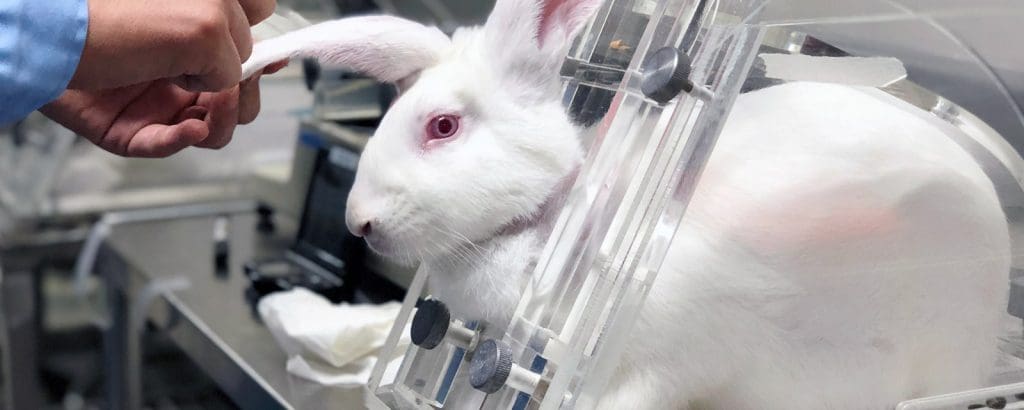Every year, more than 100 million animals are subjected to harm and suffering as a result of animal testing, a practice that continues to raise serious ethical and moral questions. Despite remarkable advances in scientific and technological research, which have provided alternative testing methods that are more humane and effective, the use of animals in laboratories remains widespread across the globe. Even in the most scientifically advanced nations, such as the United States, companies and research institutions still rely on this outdated, inhumane practice to test the safety of products. This involves subjecting animals to extreme conditions that can cause them to suffer from burning, poisoning, and crippling injuries. In these experiments, animals are often treated as mere tools or objects, stripped of their rights and dignity.
The ongoing use of animal testing is not only cruel but also highly controversial, as it involves inflicting unnecessary pain and suffering on sentient beings who are unable to advocate for themselves. Beyond the immediate harm to the animals involved, animal testing poses significant risks to human health and the environment. In many cases, the results of animal tests are not even applicable to humans due to the vast biological differences between species, leading to misleading conclusions and wasted resources. Furthermore, the chemicals and substances used in these experiments can also have long-lasting negative effects on the environment, contributing to pollution and ecological degradation.

As the world continues to progress in both ethical standards and scientific capabilities, there is an increasing need to shift away from animal testing. It is imperative to recognize the inherent cruelty of these practices and acknowledge that there are more reliable, non-animal alternatives that can provide more accurate and humane outcomes. The fight to end animal testing is not just about protecting animals, but also about advancing scientific integrity, human health, and environmental sustainability. The time has come to stop animal testing once and for all.

Overview: The Horrors of Animal Testing
Each year, tens of millions of animals are subjected to experimentation in laboratories across the United States. Shockingly, it is estimated that between 85 and 95% of these animals are not granted legal protections, leaving them vulnerable to unimaginable suffering. These animals, often rats, mice, birds, and fish, are complex beings that experience pain and distress in ways similar to humans, yet they are denied the basic rights and safeguards that should be afforded to any living creature.
The true extent of this crisis is difficult to measure, as under current U.S. law, laboratories are not required to disclose comprehensive data on the species used in experiments. The lack of transparency makes it challenging to accurately assess the scale of animal testing, but it is clear that rats, mice, birds, and fish—creatures capable of complex emotions and suffering—are the primary victims of this practice. The absence of legal protection means that the vast majority of animals in laboratories are subjected to horrific conditions with little to no oversight, leaving them exposed to unnecessary cruelty and pain.

These animals are used in a wide array of research fields, each with its own set of ethical concerns and potential consequences. Biomedical research, which includes the testing of drugs, vaccines, and medical procedures, is one of the largest sectors that relies on animal testing. However, it is not limited to the medical field. Animals are also used in aeronautic and automotive testing, where they may be subjected to extreme conditions, crashes, or other forms of harm in the name of human safety. In the military sector, animals are often used in experiments that may involve chemical exposure, weaponry, or behavioral conditioning. Similarly, in agriculture, animals are subjected to genetic testing, pesticide trials, and other research that affects their well-being.
Behavioral and cognitive research frequently involves exposing animals to various stressors or unnatural environments to study their reactions and cognitive abilities. This type of testing is particularly troubling, as it involves manipulating animals in ways that can cause long-term psychological damage. Additionally, animals are used in consumer product testing, where they are subjected to harsh conditions and chemicals to determine the safety of everyday products such as cosmetics, cleaning agents, and toiletries.
In all these research areas, the treatment of animals raises serious ethical questions. While some argue that animal testing is necessary for scientific advancement and human welfare, the methods employed often lead to extreme suffering. For instance, animals may be confined to small cages, isolated from social interaction, or subjected to painful procedures without anesthesia. In many cases, the animals are killed once the experiment is concluded, often without any consideration for their well-being or whether the research has provided meaningful results.
Despite the undeniable progress in alternative research methods, such as in vitro testing, computer simulations, and synthetic biology, animal testing continues to be a deeply ingrained practice in many industries. The growing body of evidence supporting the ineffectiveness and ethical concerns of animal testing has led many to question whether it is truly necessary, or if we can move forward without subjecting innocent creatures to needless harm.

The horrors of animal testing are not just limited to the physical pain these animals endure; they also face mental and emotional suffering in environments where their natural behaviors are stifled, and their survival instincts are disregarded. It is time for a serious reevaluation of the use of animals in research and a shift toward more humane and scientifically valid alternatives that do not involve the suffering of sentient beings.
What You Can Do
Each of us has the power to contribute to the fight against animal suffering and prevent needless deaths by taking meaningful action. Every decision we make, from the products we purchase to the organizations we support, can make a significant difference in ending the cruel practice of animal testing. Here are some proactive steps you can take to help animals and promote change:
1. Support Cruelty-Free Products
One of the most immediate ways to reduce animal suffering is to buy cruelty-free products. Many companies still test their products on animals, but a growing number of brands have committed to cruelty-free practices. By choosing to purchase only from brands that do not test on animals, you can send a clear message to companies that consumers care about animal welfare. There are numerous cruelty-free certifications and labels that can guide your purchasing decisions, making it easier to choose products that align with your values.
2. Donate to Ethical Charities
Another way to make a difference is by donating only to charities and organizations that do not support or engage in animal testing. Some medical and scientific research charities still fund animal experiments, even though there are viable alternatives available. When you contribute to organizations that promote non-animal research methods or advocate for animal rights, you are helping to fund a future where animals no longer suffer for human gain.
3. Request Alternatives to Animal Dissection
Animal dissection in classrooms remains a widespread practice despite the availability of effective and ethical alternatives. You can help by advocating for and requesting non-animal alternatives in your school or educational institution. Virtual dissection programs, 3D models, and interactive software can replace the need to dissect animals in a way that teaches students biology without causing harm to living creatures.
4. Advocate for Humane, Non-Animal Testing
One of the most powerful ways to reduce animal testing is by pushing for the immediate implementation of humane, non-animal testing methods. Government agencies and corporations often fund or conduct experiments on animals, and it is essential to demand that they invest in effective, non-animal testing alternatives. By raising your voice, whether through petitions, letters, or public campaigns, you can demand that institutions adopt more ethical and scientifically advanced testing methods. Encourage policymakers to implement laws that favor alternatives to animal testing, and hold companies accountable for continuing to use outdated, cruel practices.
5. Encourage Academic Institutions to Stop Experimenting on Animals
Many universities and research institutions continue to use animals in their studies, even when alternatives exist. You can play a crucial role in urging your alma mater or local educational institutions to stop experimenting on animals. By reaching out to university administrations, faculty members, and student organizations, you can help create a campus culture that values ethical research practices and animal welfare.

Key Actions You Can Take
There are several specific efforts that can have a profound impact on reducing animal testing and advancing humane alternatives:
- Support Eyewitness Investigations and Advocacy: Organizations exposing the harsh realities of animal testing help raise awareness and build public support for change. You can assist by supporting these campaigns.
- Push for Government Action: Advocate for policies that limit animal testing and encourage the use of non-animal methods. Pressure lawmakers to pass laws that protect animals and fund humane research.
- Encourage Companies to Adopt Non-Animal Methods: Urge pharmaceutical, chemical, and consumer product companies to replace animal testing with more effective alternatives. Participate in campaigns targeting companies that still use animal testing.
- End Classroom Dissection: Encourage the use of ethical, non-animal alternatives in schools, such as virtual dissections and 3D models, to replace animal dissection.
- Fund Humane Research: Support organizations funding non-animal research to help develop better, more effective testing methods.
- Promote Non-Animal Research: Advocate for the publication and use of scientific research showing the superiority of non-animal testing methods.
- Encourage Health Charities to Rethink Animal Testing: Push health charities to invest in non-animal research methods instead of funding animal experiments.















































